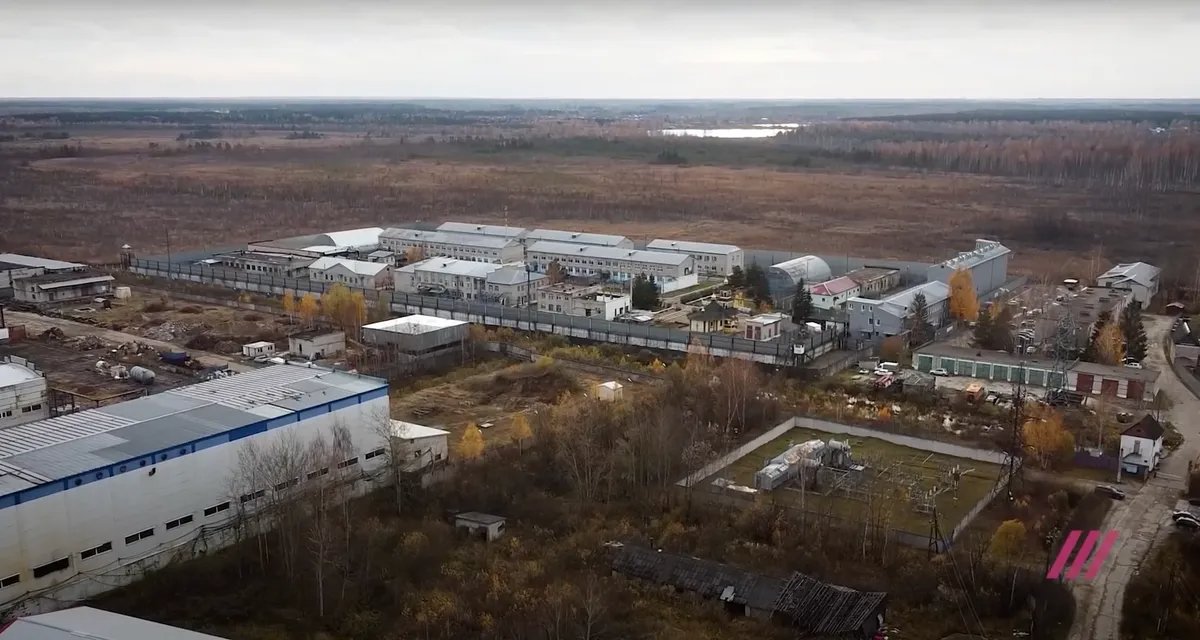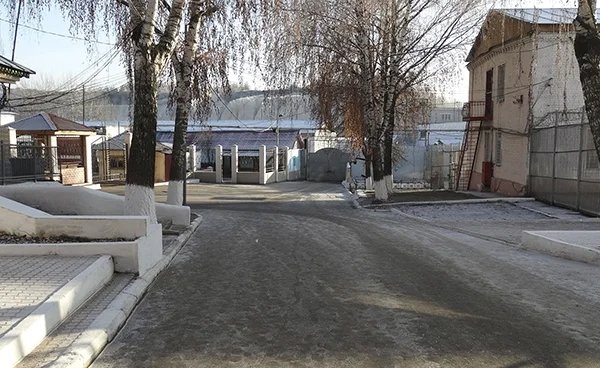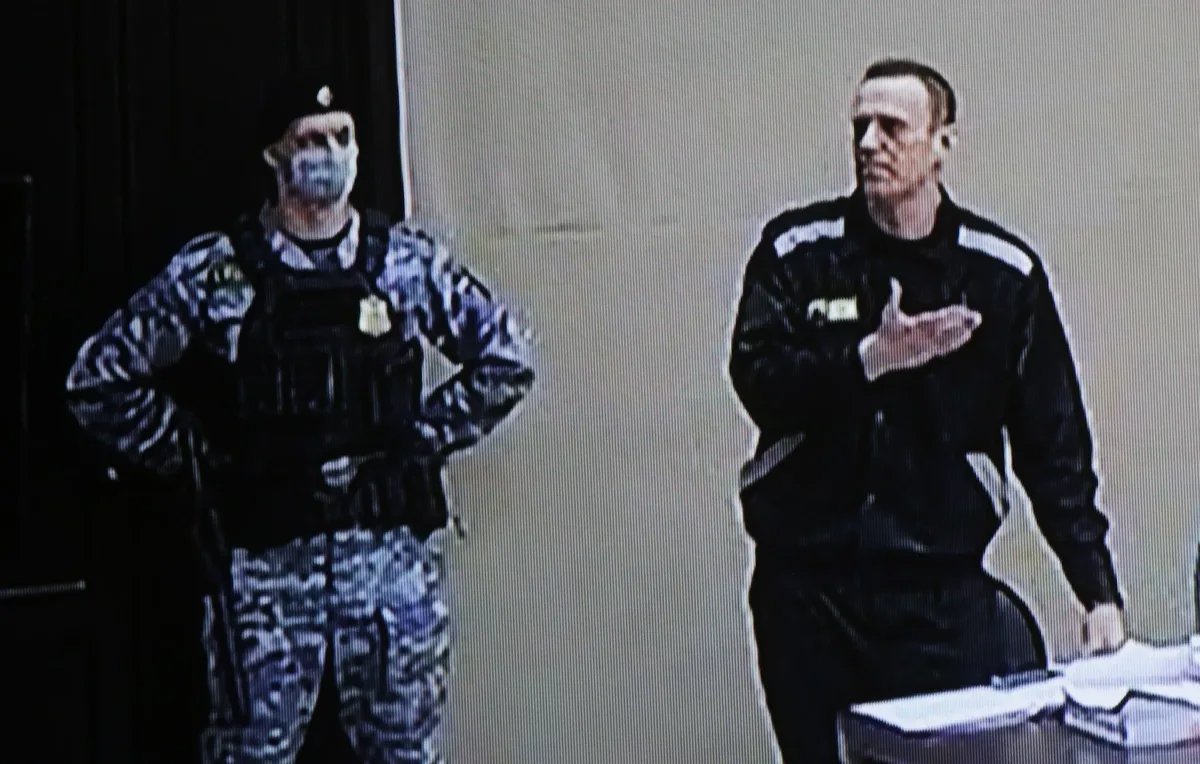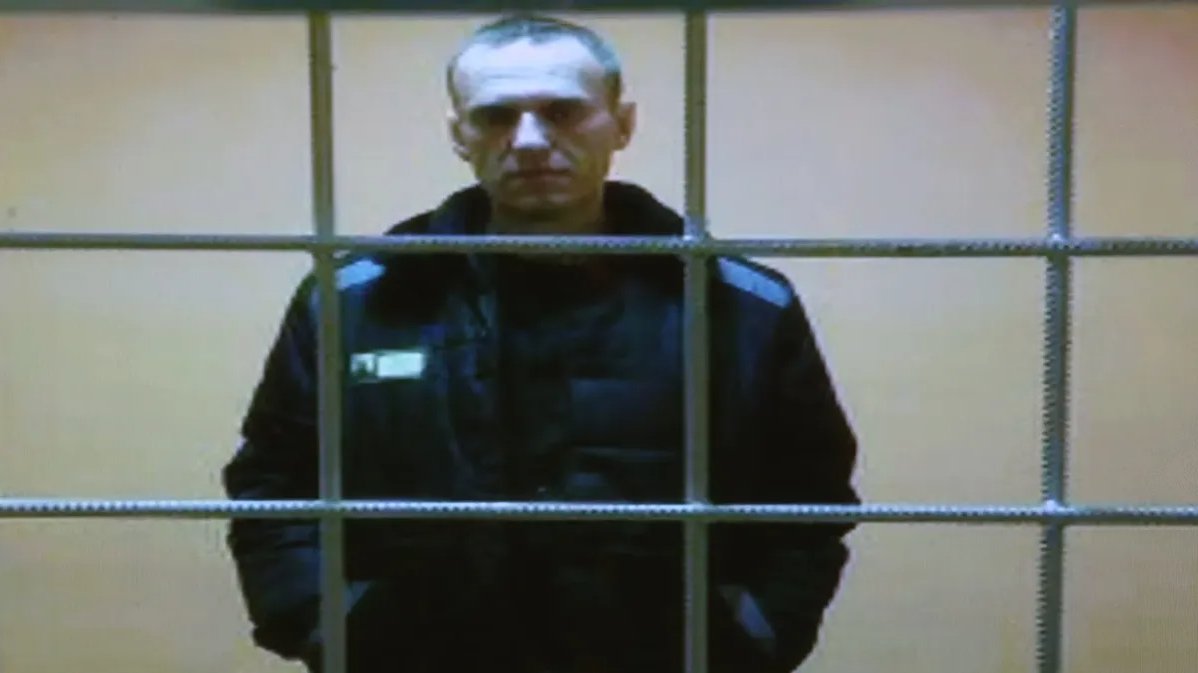Russian politician Alexey Navalny, who returned to Russia even after having been poisoned, has been imprisoned for almost two years. Since then, there have been at least eight new criminal cases initiated against him, Navalny’s Anti-Corruption Foundation and Navalny’s Headquarters (regional organisations founded by the politician — translator’s note) have been deemed extremist organisations by the government, and the politician himself has been transferred to the Melekhovo penitentiary, where he has been constantly placed in solitary confinement and prohibited from communicating with his lawyers in confidence.
Novaya Gazeta. Europe has gathered all the available information about the pressure being put on the “prisoner number one”.
Sleep deprivation torture and refusal of medical care
In January 2021, Alexey Navalny returned to Russia after his poisoning and recovery abroad — on his return to Moscow, he was detained in the Sheremetyevo airport. The next day, he was placed in a pre-trial detention centre, and later transferred to the Vladimir region penal colony 2; his suspended sentence over the Yves Rocher case was changed to a real one. After he had been placed in the penal colony 2, according to Russian human rights organisation Memorial, at least eight new criminal cases were initiated against Navalny, he has already received several sentences in relation to them: he was given a fine over charges of insulting a war veteran and sentenced to nine years of imprisonment in total over charges of “embezzlement” through the Anti-Corruption Foundation and “insulting participants of the court” during the war veteran case. Eventually, the politician was transferred to the Melekhovo penitentiary 6, infamous for its prisoners being tortured and sexually abused.
Navalny was not the first political prison to end up in the penal colony 2 of the Vladimir region: previously, Russian activist Konstantin Kotov served time there, he was sentenced under the so-called Dadin’s Article (it introduces a penalty of up to 5 years in prison for repeated violations of public assembly rules — translator’s note) for one and a half years of general regime colony. According to Kotov, the colony administration creates difficult detention conditions for political prisoners on purpose: for example, no one is allowed to talk to them, they are put under psychological pressure by being placed in a “prison inside a prison”. According to other convicts who were there at the same time as Navalny, a special squad was created for Navalny in the penal colony 2 — its members, for example, fried chicken and other meat near Navalny while he was on a hunger strike; inmates stood near him while Navalny was in the bathroom.

The penal colony 2 where Navalny at first served his sentence. Screenshot from a TV Rain report
In the Vladimir region colony, Navalny was considered an inmate likely to escape, later an inmate prone to extremism and terrorism. He was put on the registry of those likely to escape from prison back in February 2021 when he was still in a Moscow pre-trial detention centre. Due to the preventive registration, Navalny was later subjected to the so-called “sleep deprivation torture” in the Vladimir penal colony 2. “Every night, an employee of the colony visits me, turns on the Watch system, records footage of me, and says out loud that he is recording proof of the inmate Navalny [being in his cell], thus, waking me up every hour,” the opposition politician reported back then.
Navalny’s health problems, the result of his poisoning, worsened due to not being able to sleep. “It’s very hard and painful to even get up from my bed. They accept my complaints, but don’t do anything about them. A week ago, I was examined by the colony doctor, she started giving me two ibuprofens [a day], but I wasn’t made aware of my diagnosis,” he wrote back then.
The colony administration refused to let civilian doctors see him, which is why Navalny went on a hunger strike. Eventually, he was allowed to be examined by the doctors.
‘They exile those they want to make disappear there’
At the end of March 2022, Navalny was sentenced once again, this time for allegedly embezzling money through the Anti-Corruption Foundation donations and insulting a judge during a previous case, in which he had been found guilty of slandering a war veteran. The case was tried by Moscow’s Lefortovo District Court during an offsite hearing in the colony. The court not only sentenced Navalny to nine more years in prison but also ruled that his place of punishment had to be changed to a strict regime colony. Afterwards, Navalny was sent to the penitentiary 6, located in the village Melekhovo in the Vladimir region.
A strict regime colony usually means more restrictive detention conditions for the convicts, however, it all depends on the individual place, Olga Romanova, founder of human rights organisation Russia Behind Bars, tells us. “Besides the limitations on prison visits, serving time in a strict regime colony also presupposes a limitation on the number of parcels and transfers [an inmate receives]. This is very important, it means that inmates go hungry way faster there than in general regime colonies. In all other things, it’s mostly the same. There are general regime colonies and settlement colonies, when people from strict regime colonies end up in these places with better detention conditions, they ask to go back to their previous place of imprisonment, because [all of these] places differ mostly depending on who runs the colony. Every colony is unique, but nowhere is the law being followed. Everything depends on the handler,” she says.
The Melekhovo penitentiary is infamous for the abuse of its convicts. In March 2021, outlet Mediazona published a letter written by inmate Ivan Fomin — he reported systemic torture and sexual violence that happened in the penitentiary 6. For example, Fomin said that he had been made to renounce Islam and convert to Orthodoxy under threat of torture.
“The Melekhovo penitentiary is one of the worst strict regime colonies. Traditionally, they exile those they want to make disappear there,” Olga Romanova explains. “It’s one of the only places in the Federal Penitentiary Service system with a lot of high-paying positions. It also has a high rate of staff turnover. It’s not very clear why, seeing as it’s a good job in the middle of nowhere, in a place where it’s very hard to find any job. And still, there are a lot of open positions. Of course, there’s a lot of evidence of beatings and humiliation [of inmates] — both from the people who served time there and people who used to work there. The convicts talk about [the beatings they suffered], but no one caresб so nothing changes.”

The Melekhovo penitentiary 6. Photo: fsin-atlas.ru
‘There are people who spent years in solitary confinement’
Although Navalny has not been beaten or tortured, he has been put under pressure, especially after he had announced the foundation of trade union Promzona, the goal of which is to defend the rights of prisoners. “My first reward was the wild eyes of the administration. They thought I was joking at first. And now they call it exclusively ‘illegal’. Then they started summoning me every day to the disciplinary committee and reprimanding me <...>. Then a whole delegation came to my barracks and solemnly handed me a "warning about an anticipated crime", implying that I was preparing it by forming a union,” he said back then.
On 15 August, the politician was placed in solitary confinement for the first time — three days for “regularly unbuttoning the top button of his prison robe”. “Solitary confinement in a strict regime colony is a single cell, the inmate placed there is given another uniform — so, he takes off the robe he usually wears, instead he is given a common orange uniform. Beforehand, he is subjected to a humiliating full-body inspection. Then, almost everything is taken away from the prisoner: parcels, food. They are only allowed a limited number of books, so one can, for example, take the Bible there, and it will be the only thing they can read.
According to one of Navalny’s posts, this leads to some sort of meditation and yoga [as the only passtime], seeing as there’s just nothing to do in there: one can’t neither write nor read nor lie down.
An inmate can only sit on an iron stool screwed into the concrete floor, in front of them there is only an iron desk that is also screwed into the floor. The maximum time [in solitary confinement] is 15 days, this is how they pass. Any form of communication is prohibited, they are only fed tasteless food, no transfers with tea or cookies are allowed,” this is how Olga Romanova describes the process.
After his first stint in solitary confinement, Navalny was sent there several more times. The second time was on 24 August — five days for “violating the rules of escorting to solitary confinement” back when he had been sent there for the first time. “They send me to the SHU for 3 days for an undone button. While leading me there, they shout: ‘Hands behind your back!’ “Uh-huh,” I reply and put my hands behind my back. But for 3 seconds, I walked normally, without my hands behind my back. I had committed a crime!” was the reason for his second stint in solitary confinement, according to the politician.
Then, Navalny was sent to solitary confinement once again, that time for the maximum term of 15 days; he was also deemed a “malicious offender”, which leads to stricter detention conditions for an inmate, his press secretary Kira Yarmysh reported back then. Due to being a “malicious offender”, Navalny is now allowed only one long meeting with his family once in six months — and only if he will not be in solitary confinement at the time.

Alexey Navalny during an offsite court hearing in the penal colony 2, 21 February 2022. Photo: Mikhail Svetlov / Getty Images
According to Romanova, there are basically no limits to the amount of times an inmate can be sent to solitary confinement. “Even before the war, we tried to get a bill approved that would only allow solitary confinement by court order, so there would be some way to appeal. But no one has time for this issue currently, obviously. They will, of course, protect [the existing] laws for ‘prisoner number one’, so they can keep him in solitary confinement for as long as they want. And of course, being put in solitary confinement not only reduces a chance of parole, it basically destroys any chance of one. But obviously, in the case of Navalny, there’s no possibility of parole,” the human rights defender explains.
Another way Navalny is being put under pressure is by being deprived of his right to talk with his lawyers in confidence. According to the penitentiary administration, the politician “continues to commit crimes, even while in prison and is using communication with his lawyers to do so”. Kira Yarmysh said that Navalny had been then forbidden to exchange any notes or documents with his lawyers, his attorney-client privilege had basically been revoked. “From now on, your meetings will be conducted only under supervision, and all juridical correspondence will be subjected to at least a three-days-long inspection,” she quotes the administration.
At the beginning of September, the penitentiary administration first closed the document transfer slot during Navalny’s meetings with his defenders, and later put opaque paper over the mirror that divides Navalny and his lawyers. “And now my meeting with a lawyer really looks like a confession in a Catholic church. I sit on a chair in a 1x1 metre room. There is a plastic wall in front of me, behind which I can vaguely see the silhouette of a man.
I can only guess that he is a lawyer by his voice. And now I keep wanting to say, ‘Forgive me, Father, for I have sinned’,” the politician mocks.
Founder of Russia Behind Bars Olga Romanova says that she has never seen a prisoner be treated this way. “We have never seen anything like this. We had [a similar problem] with [Konstantin] Kotov, when they wouldn’t let in lawyers to see him. Back then, they used Covid as an excuse. But sealing the window, not letting him communicate, not allowing him to exchange documents — this is a first. This was all invented especially for him,” she notes.
But even these measures were not enough for the penitentiary administration. According to Navalny, they nowtake all of his lawyer’s documents away at the entrance to the colony, because “from now on the administration of the colony will decide what is relevant to the criminal case and what is not”. “I feel like my next post will be about being brought to the meeting with my lawyer tied up with my mouth taped shut. I don't know how I'm going to dictate it though. I could learn Morse code, but I have no idea how to bang my head against a wall and to make a dash,” he jokes.
Join us in rebuilding Novaya Gazeta Europe
The Russian government has banned independent media. We were forced to leave our country in order to keep doing our job, telling our readers about what is going on Russia, Ukraine and Europe.
We will continue fighting against warfare and dictatorship. We believe that freedom of speech is the most efficient antidote against tyranny. Support us financially to help us fight for peace and freedom.
By clicking the Support button, you agree to the processing of your personal data.
To cancel a regular donation, please write to [email protected]

